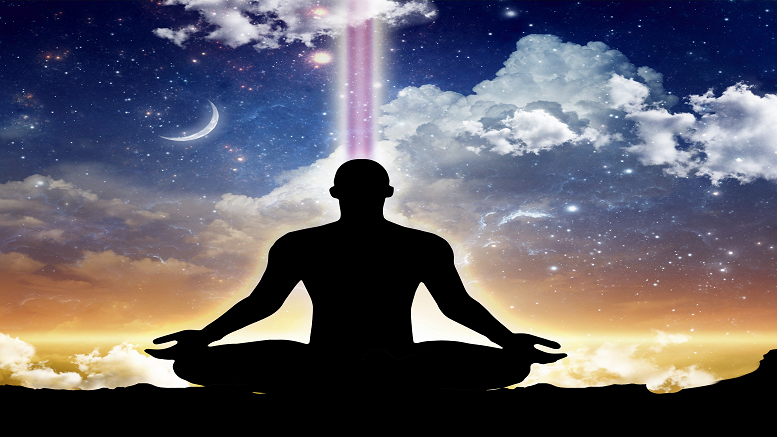Do we possess consciousness?

Browse by Phenomena
View Popular Filters
Human beings possess a number of objects- wealth, clothes, jewelry, cars, boats, etc. The reality of life is, all possessions are subject to decay and eventual destruction. No possession lasts forever.
But the question is, is consciousness also a possession just like other possessions? Do we “possess” consciousness just as we possess various objects?
The answer is no. Consciousness is not an object. So, it is not a possession, although we may loosely use the term consciousness in medical terminology to mean that a person is either conscious or unconscious which means he/ she is either able to respond or unable to respond. But in spiritual science or Vedanta, the term consciousness is not used in this sense. If we lose our possessions, we can still continue to exist but if we lose consciousness, we will cease to exist!
So it is wrong to say that we “possess” consciousness. What then is the relationship between ourselves and our consciousness?
According to Upanishads, Consciousness is our fundamental nature. Consciousness is Atma and everything else is Anatma (non-Atma). Katha Upanishad very clearly explains the nature of Consciousness or Atma. Consciousness is who we are; it is our fundamental nature. We mistakenly identify ourselves as our body and mind. We have hands, legs, head, chest but wouldn’t it be wrong to say that we “are” hands, legs, chest, head, or in other words, the body?
Obviously, while we have body and mind, we are not the body and the mind. We see, touch, smell, taste and hear about various objects using our mind. But what is behind mind? If we are sad or happy, how do we know that we are happy or sad? It is consciousness that knows our happiness and sadness. Consciousness is the witness of the mind or Sakshi. So, consciousness witnesses all the happenings on the screen of our mind.
Everything that happens on this screen during our waking state, dream state and sleep state (Jagrth, Swapna and Sushupti) is being witnessed by consciousness. During waking and dream states, consciousness witnesses what is happening on our mental screen but during deep sleep, is consciousness dead? Definitely not.
Consciousness is present in deep sleep state too but it has nothing to witness and therefore, it is witnessing the absence of mental activity in deep sleep (sushupti). If consciousness were not present in deep sleep, we would cease to exist! Everything we perceive is perceived in our mind.
For instance, our mind perceives a person sitting on the chair in front of us. Anything we see, hear, taste, smell and touch are all perceived by the mind because they all leave an image in our mind. What we see are all images and we are the aware witness of various images in the mind. Since we are the witness, we are not the object but we are the subject, or the Sakshi of the contents of our mind. Therefore, our inherent nature is consciousness, the witness of all.
Anything perceived by me is not ME, since I am the witness. This concept is also very well explained in Sri Shankara’s book Drk-Drshya Viveka. Viveka is the ability to distinguish between the perceiver and the perceived. The person who has understood this distinction is called Dhira or a wise person. So, a dhira has understood that he is the witness or consciousness or Atma and not the body, or the mind and he is beyond pleasure and pain because all pleasures and pains affect the body and the mind whereas he is the conscious witness that is aware of all happenings.
As the witness, consciousness is completely unaffected by what happens to body and mind, just as a person watching a movie is not affected by various happenings in the movie. So, both pleasurable events such as birth of children, beautiful weddings, lottery winnings or tragic events such as break up of marriages, horrific fires or gruesome murders will not affect his life since he is just an aware witness and not a participant in the events.
A very interesting and a challenging question is, can we be conscious of consciousness or Atma?
A flashlight cannot illumine itself although it can illuminate various objects. So too, consciousness can illumine the objects in our mind but is not available for seeing. Since our true nature is consciousness and consciousness is not an object, we can never experience it ourselves just as we can never embrace ourselves!
Then, how can we discover that shining consciousness which is everywhere? Silence is the best and the only way to discover the truth of who we are. Silence means going within ourselves. Silence is the absence of all mental activities and in the absence of mental activities, what remains is us.
Remember the story of the proverbial 10th man who was running around frantically looking everywhere for the missing tenth man until he stopped running around and discovered that he was the 10th man himself? According to Vedanta, we can discover ourselves when our mind comes to a complete stop (just as the 10th man did). In that silence, all thoughts, emotions, perceptions are all gone. The body is gone; the world is gone. What is left is us. Us alone are completely present. We are the Consciousness; we are Atma that is limitless, unborn, eternal, perfect, and complete. We are Sacchidananda Atma.
One final issue- What difference does it make to our lives whether consciousness is finite or infinite?
Once we understand that consciousness (Atma) is infinite, we have then discovered the true source of happiness that is within ourselves. The true source of joy is us, ourselves. The true source of happiness or Ananda is us, ourselves. Ananda is not an object and so it is not ours because it is us.
View Original Article